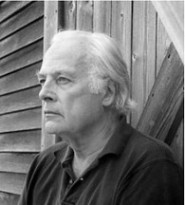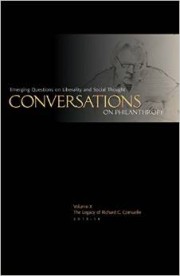The Necessity of Overcoming Prejudice of Political Philosophy as a Condition for Philanthropy
This paper addresses the question, “Why does the political solution to social problems appear to be the default position in contemporary America?” A complete answer to this question would take us to the heart of the dynamic of American society, and would involve considerations of historical development, contemporary politics, and political philosophy. An answer to this question is central to any effort to move away from government and toward independent voluntary action as a means of dealing with social and community problems. An alternative to the default move to government control is crucial if philanthropy is going to have an independent life of its own as opposed to simply being one more piece of equipment in the political toolbox.
A complete answer to the question at hand is not provided here; rather, I deal with one component of the problem. This paper approaches the subject not by examining contemporary attitudes or the immediate historical framework for the development of American philanthropy, but by examining how political philosophy frames our understanding of social life.
In the first section of this paper, I will examine a major premise underlying political philosophy identified by Leo Strauss: the notion that “the political association…is the most comprehensive or authoritative association” in society. I will offer a critique of this position based on the argument that “the political” exists in the modern world only by analogy, and that the use of the political analogy allows many assumptions, perhaps true of the ancient Greek polis, to be applied without serious thought to the modern state. In the second section, I argue that this question is of more than historical interest, as an examination of both conservative and liberal arguments will demonstrate. The focus of that section will be the arguments made by conservative political commentator George Will in Statecraft as Soulcraft: What Government Does and those of William James in “The Moral Equivalent of War.” In the final section of this paper I will consider alternatives to the position of preeminence given to the state by all three of these writers.
Among other things, my discussion of Strauss and Will is intended to emphasize the underlying irony of much contemporary political action and debate. Many conservative political writers (including Will himself on occasion) point to “collectivistic liberalism” as the intellectual source for the growth of government. Neither Leo Strauss nor George Will is a part of the liberal establishment, yet their arguments provide a foundation for the development of government as expansive and intrusive as that supported by the left.




